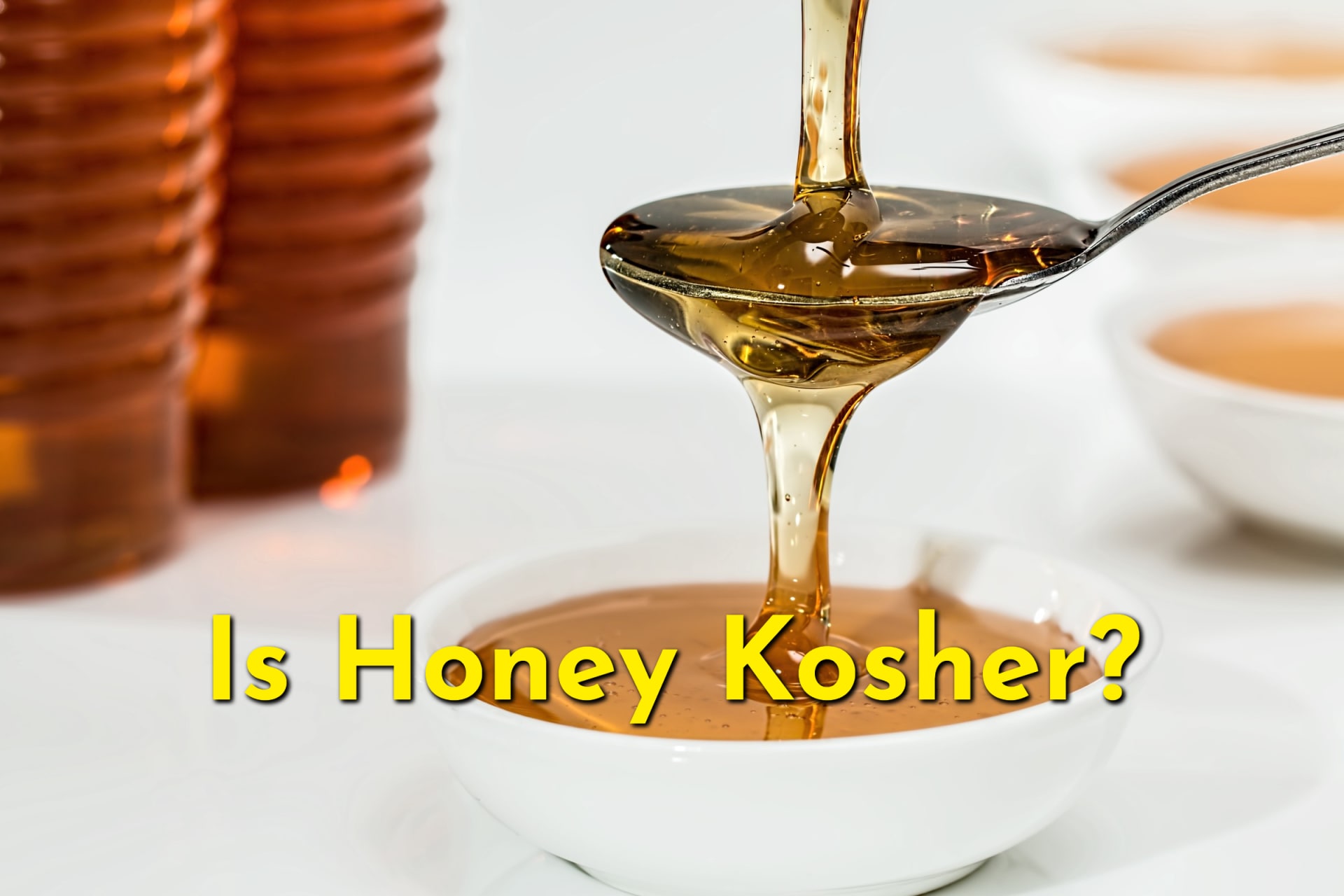Honey is a delicious treat for many. It can be sweeten foods or drinks. Some use it for medicinal purposes. But can anyone use honey? One question we see a lot is: “Is Honey Kosher?” But before we can answer that question, let’s first take a look at what “Kosher” means.
What Does ‘Kosher’ Mean?
‘Kosher’ is a Yiddish term from the Ashkenazi word ‘kashér’, meaning ‘fit’. In the context of food, this term refers to foods that are ‘fit for consumption’ based on the strict dietary standards of the Kashrut. The Kashrut laws come from the Torah’s books Deuteronomy and Leviticus. The oral traditions of the Jewish people, the Mishnah and Talmud, further detail instructions on the practical application of these laws. The Kashrut laws outline not only what foods are kosher and able to be eaten, but also food preparation methods. The laws even detail how and when to serve the food.
For example, challah bread is a traditional braided loaf. It’s an important part of the meal for Shabbat and other major Jewish holidays – except for Passover. While this rich eggy bread has become synonymous with the term, ‘challah’ actually refers to the offering made during the bread-making process. How this blessing and offering is made differs depending on which Jewish tradition you follow. However, the basic concept is the same. Before splitting and shaping the dough into loaves, a small portion is removed and burnt while reciting a prayer of thanks. If this process is not observed, the bread is not considered kosher. If it’s not kosher then it can’t be served with the meal.
While there are a number of theories as to the philosophical, hygienic, and practical purposes behind the Kashrut, the reasons for these guidelines is not expressly stated in the Talmud and many consider it simply to be a test of faith and obedience.
What Foods are Kosher?
There is an old saying in Jewish tradition that says, “That which comes from something that is non-kosher, is not kosher and that which comes from something that is kosher, is kosher.” For example, the Kashrut states that animals with cloven-hooves and chew their cud are kosher. This means that meat and dairy products produced by cows, sheep, and goats are fit for consumption. Yet, meat and dairy products produced by other animals, such as camels, horses, or pigs, are not kosher. But why? While camels and horses both chew their cud, neither are cloven-hooved and while pigs are cloven-hooved, they do not chew their cud. The animal must meet both requirements for its flesh and byproducts to be kosher.
In Leviticus 11:20 it is expressly stated that ‘All flying insects that creep, going on all four legs, shall be an abomination to you.’ Bees, being 6 legged flying insects that creep, as opposed to hopping like certain types of locust, are considered non-kosher. According to tradition, something that comes from a non-kosher animal is, by default, not kosher, right? This line of thinking has led many Jews, whether converts to Judaism or not, to wonder: Is honey kosher?
The answer for you may come down to personal beliefs and how you follow Kashrut law. For many there is an important distinction to in the production of honey and how it’s processed for consumer use.
How is Honey Made?
Honey begins as nectar. Nectar is a thin, sugary fluid flowers produce to attract pollinators. Common pollinators include bees, birds, butterflies, moths, and even some species of beetle. When a bee lands on a flower they insert their proboscis, a long tube-like structure through which they collect the nectar. The bee stores the nectar in its crop, a highly specialized portion of the bee’s foregut. Bees may consume the nectar outright for a quick energy boost while they work. Otherwise, they store the nectar there, absorbing some of its moisture, before transporting it back to the hive. Once back at the hive, the bee deposits the nectar in wax cells, called honeycomb. It’s here where worker bees fan it to facilitate the evaporation of moisture in the nectar, transforming it into honey.
Is Honey Kosher?
While bees are not kosher eating, many do consider honey to be an acceptable part of a kosher diet. But how? The simple answer is that bees make the honey but honey does not actually come from the bee. While the flesh and other products of horses and camels are not considered kosher, it is permissible to use these animals as beasts of burden. Milk produced by a kosher cow is not rendered non-kosher if a non-kosher horse transports it. Similarly, honey is technically a product of flowering plants. The bee simply transports the nectar to another location to facilitate the production of honey.
It’s important to note that, while the honey itself may be kosher, aspects of the harvesting and packaging process may not comply with Kashrut law. Many commercial producers of honey may add flavorings or other additives to the honey. These additives may be from non-kosher sources. Or, they may process the honey on or near equipment that also processes other non-kosher foods. To ensure complete compliance with Kashrut law, it is essential to select a brand that is 100% pure honey and produced by apiaries certified Kosher by a reliable certifier.
If you’d like to learn more about honey then reach out to Beek’s Best. We’re here to provide the best information on honey, as well as beekeeping. We can help you get started on your own honey journey. Beekeeping is incredibly rewarding in multiple ways. And, the added perk of beekeeping is that you know exactly where your honey comes from, what’s in it, and how it’s processed. Kosher honey is within your grasp.


Recent Comments